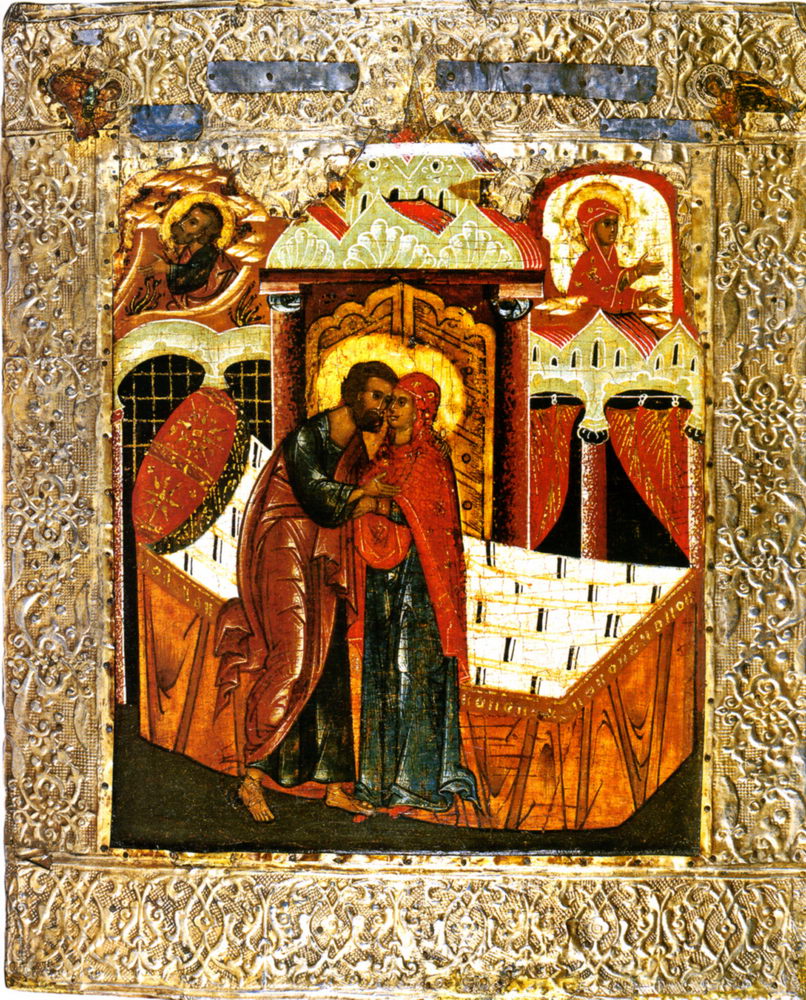
(In the corners of the icon, Joachim and Anna are shown separately. According to the Protoevangelium, in his grief Joachim retired to the desert in fasting and prayer for forty days, while Anna remained lamenting at home. An angel was sent to each of them to announce that their entreaties had been heard by God and that they should return to each other to conceive; the main scene shows the happy meeting.)
The Conception of the Mother of God by Saint Anna is commemorated by the Orthodox Church on December 9 while the Western Church celebrates on December 8. St. Anna, the mother of the Virgin Mary, was the youngest daughter of the priest Nathan from Bethlehem, descended from the tribe of Levi. She married St. Joachim, who was a native of Galilee. For many years, St. Anna was childless and the couple suffered much reproach for her barrenness. When they were in Jerusalem to offer sacrifice to God, the High Priest, Issachar, upbraided Joachim, “You are not worthy to offer sacrifice with those childless hands.” Both spouses gave themselves to fervent prayer, and the Archangel Gabriel announced to them separately that they would be the parents of a daughter who would bring blessings to the whole human race.
The Orthodox Church does not accept the teaching of the Immaculate Conception, but has also always believed that the Virgin Mary was, from her conception, filled with every Grace of the Holy Spirit in view of her calling as the Mother of Christ our God. The Immaculate Conception is a Western Christian teaching which asserts that Mary, the mother of Jesus, was preserved by God from the transmission of original sin at the time of her own conception. Specifically the doctrine says she was not afflicted by the privation of sanctifying grace which afflicts mankind, but was instead filled with grace by God, and furthermore lived a life completely free from sin. It is commonly confused with the doctrine of the virginal conception of Christ, though the two doctrines deal with separate subjects.
The feast is not exactly nine months before the feast of the Nativity of the Theotokos (September 8) as it is in the West, but one day later. Many have taught this is to show that God alone is perfect.
